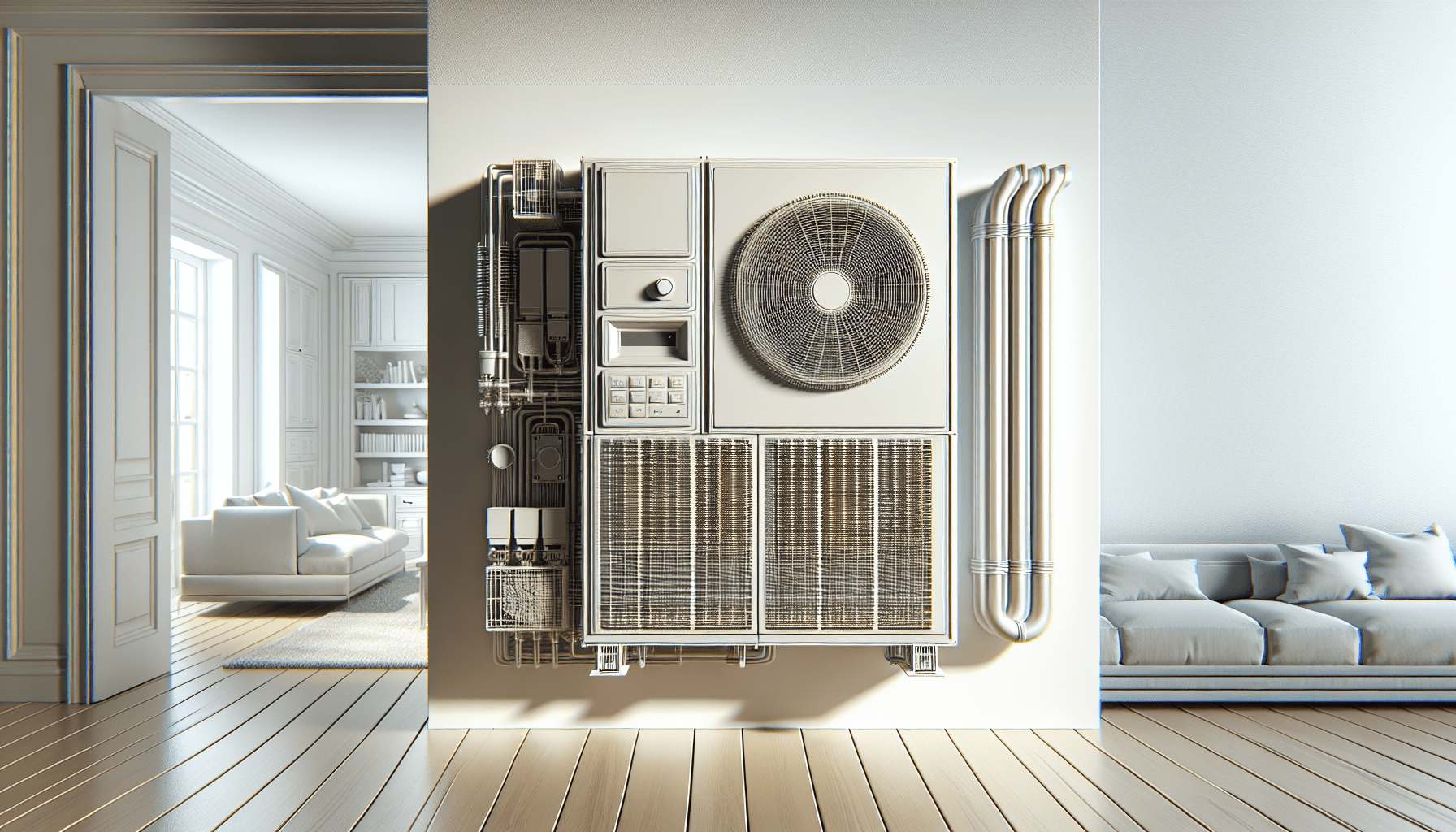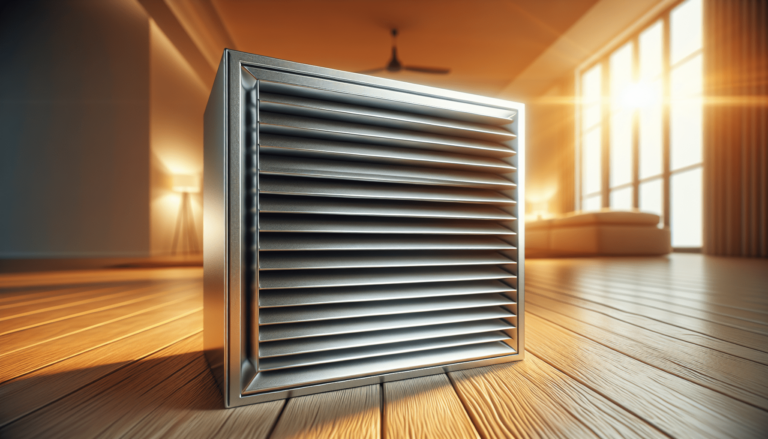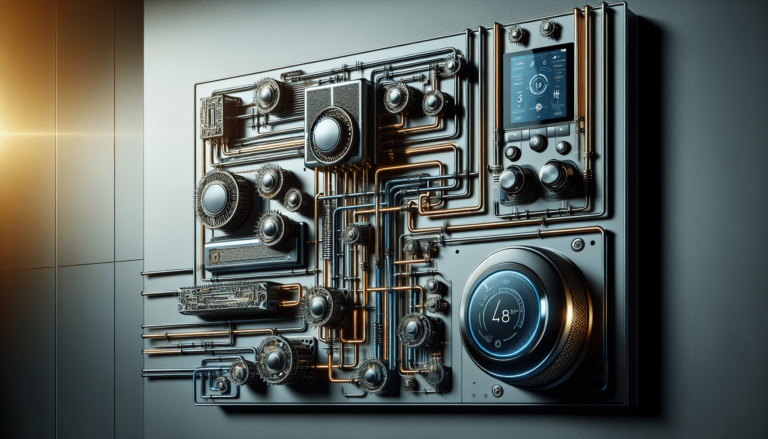

HVAC Services
Get Professional Repairs From The Area's Trusted HVAC Technicians. Ask About Our Services! We Offer Professional Heating & Cooling System Repairs And Guarantee Long-Lasting Results.
Got Question? Call us: (850) 678-2665Financing
Beginner’s Guide To HVAC Terminology
Learn HVAC terms effortlessly with our Beginner's Guide to HVAC Terminology. Understand heating, ventilation, and air conditioning systems like a pro. Visit Tempacure HVAC!

Welcome to your journey into the world of HVAC! In this beginner’s guide, you’ll find clear explanations of the essential terms and concepts related to heating, ventilation, and air conditioning systems. Whether you’re a homeowner trying to understand your HVAC unit better or someone considering a career in this field, this guide will empower you with the knowledge you need. Tempacure Heating and Air Conditioning, based in Niceville, FL, is here to support you every step of the way. You’ll be able to make informed decisions and speak confidently about HVAC systems in no time!
Have you ever found yourself scratching your head over HVAC terminology? It can all feel a bit like learning a new language, right? Fear not, because Understanding HVAC (Heating, Ventilation, and Air Conditioning) terms doesn’t have to be rocket science. By the end of this guide, you’ll be able to discuss BTUs, compressors, or insulation like a seasoned pro. And hey, you might even impress your friends at the next gathering with your newfound knowledge!
So, let’s dive in, and I promise to keep it friendly, straightforward, and as engaging as possible.
The Basics: What is HVAC?
HVAC stands for Heating, Ventilation, and Air Conditioning. It’s basically the system responsible for keeping the indoor environment of your home or office comfortable. Think of it as the central nervous system of your building’s climate control. Understanding the components and terms associated with HVAC can empower you to make better decisions about maintenance, repairs, and upgrades.
Heating
Heating refers to the process of making the air inside your living space warm. This is usually achieved through different types of heating systems such as furnaces, heat pumps, or boilers.
Ventilation
Ventilation involves exchanging or replacing the air in your space to provide high indoor air quality. It removes dust, allergens, and ensures that you get a supply of fresh air.
Air Conditioning
Air conditioning focuses on removing heat and moisture from the interior to make it cooler. It’s most appreciated during those sweltering summer months.
Key HVAC Components
Understanding the key components of an HVAC system can make you feel like you’re no longer navigating a foreign land. Here we go:
Thermostat
Think of the thermostat as the brain of your HVAC system. It controls the temperature by communicating with the heating and cooling units, instructing them when to turn on or off.
Furnace
The furnace is a crucial element, especially for the heating component. It’s a large appliance — often situated in the basement or a dedicated furnace room — that heats air and circulates it throughout the house via ducts.
Heat Exchanger
The heat exchanger is located inside the furnace. It actually warms the air by transferring heat to the air that passes through it.
Air Conditioner
The air conditioner cools the air and is usually located outside your home in a large metal box. It has three main components: a compressor, condenser coil, and evaporator coil.
Ductwork
Ducts are essentially the passageways — like highways for air — that distribute and circulate warm or cool air throughout your house.
Ventilation Fans
Ventilation fans help with air circulation and are usually found in places that require extra ventilation like bathrooms or attics.
Filters
Filters trap dust, pollen, and other particles, ensuring that the air circulated within your home is clean and healthy to breathe.

Common HVAC Terminology
Here’s where the rubber meets the road. These terms often leave folks bewildered, but breaking them down can make them much easier to digest.
BTU (British Thermal Unit)
BTU measures the amount of heat an air conditioning unit can remove in one hour. Think of it as a way to gauge the power of your unit. For example, a unit with a higher BTU can remove more heat, making it more effective for larger spaces.
SEER (Seasonal Energy Efficiency Ratio)
SEER measures the cooling efficiency of an air conditioner. It’s calculated by taking the cooling output during a typical cooling season and dividing it by the total electric energy input. A higher SEER rating indicates better energy efficiency.
AFUE (Annual Fuel Utilization Efficiency)
AFUE is a measure of how efficiently a furnace converts fuel into heat over the course of a year. If a furnace has an AFUE of 90%, it means 90% of the energy in the fuel is turned into heat, while the remaining 10% escapes.
HSPF (Heating Seasonal Performance Factor)
HSPF measures the efficiency of heat pumps. It’s calculated by dividing the total heat output during the heating season by the total electricity consumed. The higher the HSPF, the more efficient the heat pump.
EER (Energy Efficiency Ratio)
EER calculates the efficiency of an air conditioning unit at peak conditions, usually 95°F. Unlike SEER, it’s a measure at a set temperature rather than a seasonal average.
HVAC Load Calculation
This is a process that determines the heating and cooling needs of a building. It involves factors like the size of the building, climate, insulation quality, and number of occupants. Accurate load calculations ensure that the HVAC system is neither undersized nor oversized.
Refrigerant
Refrigerant is a substance used in air conditioners and heat pumps that absorbs heat from the environment and pulls it outside, leaving your home cooler. Common types include R-22 and R-410A.
Delta T
Delta T is the difference in temperature between the air entering the HVAC system and the air leaving it. It can indicate the efficiency and performance of your system.
Specific HVAC System Types
Now, let’s peek at some specific types of HVAC systems you might encounter.
Split Systems
Split systems are the most common and consist of two main components: an outdoor unit (compressor/condenser) and an indoor unit (evaporator). They can be used for both heating and cooling.
Hybrid Systems
Hybrid systems are similar to split systems but offer the option of using either gas or electric power to heat your home. These systems can switch between fuel types to save energy and reduce costs.
Ductless Mini-Split Systems
Ductless mini-splits have an outdoor compressor and one or more indoor air handling units connected by a conduit. They’re ideal for homes without ducts or for adding climate control to individual rooms.
Packaged Heating and Air Conditioning Systems
Packaged systems are all-in-one units that typically reside outside your home. They contain both heating and cooling components in one package. Ideal for homes without basements.
Geothermal Heating and Cooling
Geothermal systems use the earth’s constant temperature to heat and cool your home. They involve underground pipes filled with water or refrigerant that loop through the ground, exchanging heat with the earth.

Troubleshooting Common Issues
A bit of DIY troubleshooting can go a long way in HVAC maintenance. Here are some common issues and how you might approach them.
System Not Blowing Air
This could be due to a tripped circuit breaker, blown fuse, or a malfunctioning thermostat. Check these areas first.
Uneven Heating or Cooling
Uneven temperatures often point to issues in the ductwork, like leaks or blockages. It might also be a sign that your system is undersized or not calibrated correctly.
Frequent Cycling
If your system turns on and off frequently (short cycling), it may be due to a clogged filter, incorrect thermostat setting, or issues with the blower motor.
Strange Noises
Strange noises like banging, clanking, or squeaking could signify several issues ranging from loose parts to motor problems.
Increased Energy Bills
A sudden spike in your energy bill could indicate that your HVAC system is running inefficiently. Check for issues like dirty filters, ductwork leaks, or if it’s time for routine maintenance.
Regular Maintenance Tips
Regular maintenance can prolong the life of your HVAC system and help it run more efficiently. Here’s your quick checklist:
Replace Filters
Change the air filters every one to three months, depending on the season and how much dust or pet dander you have around.
Inspect Ductwork
Look for signs of leaks or obstructions. Clean and seal any gaps to ensure proper airflow.
Clean Coils
Clean the evaporator and condenser coils regularly. Dirty coils can reduce the system’s ability to cool your home and force it to run longer.
Thermostat Check
Ensure your thermostat is functioning correctly and is set to an appropriate temperature.
Schedule Professional Maintenance
Have a licensed HVAC professional inspect your system at least once a year. They can spot issues you might miss and provide a thorough cleaning.
Energy Efficiency and Your HVAC System
Everyone loves saving money, and energy efficiency is the key to lower utility bills. Plus, it’s good for the environment. Here’s how you can boost the efficiency of your HVAC system.
Install a Programmable Thermostat
With a programmable thermostat, you can set temperatures according to your schedule, ensuring the system isn’t running when you’re not home.
Upgrade to an Energy-Efficient System
If your HVAC system is over a decade old, it might be worth upgrading to a newer, more efficient model. Look for systems with high SEER, AFUE, and HSPF ratings.
Improve Home Insulation
Proper insulation reduces the workload on your HVAC system by keeping the desired temperature inside your home longer.
Seal Windows and Doors
Caulking and weather stripping around windows and doors can prevent drafts, reducing the load on your system.
Use Ceiling Fans
Ceiling fans circulate air, making rooms feel cooler in summer and warmer in winter, reducing the demand on your HVAC system.
Choosing the Right HVAC Professional
Selecting the right HVAC professional can make or break your system’s performance. Here are some tips to guide you:
Check Credentials
Ensure the professional is licensed and insured. A certified technician will have the knowledge and expertise to handle your system correctly.
Read Reviews
Look for online reviews and testimonials. Personal recommendations can also be valuable.
Get Multiple Quotes
Don’t settle on the first quote you get. Comparing quotes can give you a better understanding of the market rate and help you get the best value for your money.
Ask About Experience
Experience matters. Ask how long the company or technician has been in business and their familiarity with your specific HVAC system.
Conclusion
Whew, that’s a lot to digest, isn’t it? But now that you’ve got a handle on the basics and the jargon, you’re better equipped to manage, maintain, and discuss your HVAC system like a seasoned vet. So, the next time you hear terms like BTU, SEER, or heat exchanger, you won’t have to Google frantically under the table.
If you ever need professional help or just want someone to take a look at your HVAC system, Tempacure Heating and Air Conditioning in Niceville, FL, is a fantastic resource. They can assist with all your HVAC needs, ensuring you stay comfortable year-round.
Happy HVAC learning!







